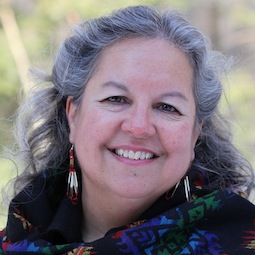Many Voices for Conservation and the Environment: Robin Wall Kimmerer
Continuing our series focused on the contributions of Black Americans, Latin Americans, Native Americans, and other historically under-recognized groups to conservation and environmental sciences, since October 12th is Indigenous Peoples Day, it is only right to focus this month on an indigenous steward of the environment.
 Robin Wall Kimmerer is a mother, scientist, decorated professor, and enrolled member of the Citizen Potowatomi Nation. She lives in Fabius, New York (near my hometown of Syracuse) where she is a SUNY (State University of New York) Distinguished Teaching Professor of Environmental Biology.
Robin Wall Kimmerer is a mother, scientist, decorated professor, and enrolled member of the Citizen Potowatomi Nation. She lives in Fabius, New York (near my hometown of Syracuse) where she is a SUNY (State University of New York) Distinguished Teaching Professor of Environmental Biology.
She has written two excellent books which I highly recommend: Gathering Moss, which was awarded the John Burroughs Medal for outstanding nature writing. and Braiding Sweetgrass, which I am happy to report has been on the NY Times Best Seller List for nonfiction. Braiding Sweetgrass is an exquisite collections of essays about the natural world which shows how the objective approach of science can be enriched by the ancient knowledge of the indigenous people. I encourage everyone to read this book as she writes so beautifully about nature. It also illustrates the true reverence between Native Americans and the earth, which is a relationship we all need to practice if we are to survive.
She is also the founder and director of the Center for Native Peoples and the Environment. The mission of the center is to create programs that draw on the wisdom of both indigenous and scientific knowledge in support of our shared goals of environmental sustainability. It is important to note that indigenous peoples are the stewards of 4% of the land area of the United States and represent approximately 700 distinct communities possessing detailed knowledge of the biota of their homelands. Collectively, Native American land holdings contain more wild lands than all of the National Parks and Nature Conservancy areas in North America! Unfortunately, the majority of scientific professionals and educators have little understanding of the value of Traditional Ecological Knowledge (TEK). Exposure to TEK has a legitimate role in the education of the next generation of biologists, natural resource managers, and environmental scientists.
The center has a large outreach program focused on increasing educational opportunities for Native American students in environmental sciences, research collaborations, and partnerships with Native American communities to address local environmental problem.
Thank you for your amazing work and gifts, Robin.
